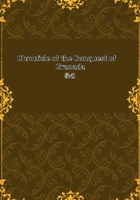
第92章
Muley Abdallah el Zagal had been under a spell of ill-fortune ever since the suspicious death of the old king his brother. Success had deserted his standard, and with his fickle subjects want of success was one of the greatest crimes in a sovereign. He found his popularity declining, and he lost all confidence in his people. The Christian army marched in open defiance through his territories, and sat down deliberately before his fortresses; yet he dared not lead forth his legions to oppose them, lest the inhabitants of the Albaycin, ever ripe for a revolt, should rise and shut the gates of Granada against his return.
Every few days some melancholy train entered the metropolis, the inhabitants of some captured town bearing the few effects spared them, and weeping and bewailing the desolation of their homes.
When the tidings arrived that Illora and Moclin had fallen, the people were seized with consternation. "The right eye of Granada is extinguished," exclaimed they; "the shield of Granada is broken: what shall protect us from the inroad of the foe?" When the survivors of the garrisons of those towns arrived, with downcast looks, bearing the marks of battle and destitute of arms and standards, the populace reviled them in their wrath, but they answered, "We fought as long as we had force to fight or walls to shelter us; but the Christians laid our town and battlements in ruins, and we looked in vain for aid from Granada."
The alcaydes of Illora and Moclin were brothers; they were alike in prowess and the bravest among the Moorish cavaliers. They had been the most distinguished in those tilts and tourneys which graced the happier days of Granada, and had distinguished themselves in the sterner conflicts of the field. Acclamation had always followed their banners, and they had long been the delight of the people. Yet now, when they returned after the capture of their fortresses, they were followed by the unsteady populace with execrations. The hearts of the alcaydes swelled with indignation; they found the ingratitude of their countrymen still more intolerable than the hostility of the Christians.
Tidings came that the enemy was advancing with his triumphant legions to lay waste the country about Granada. Still El Zagal did not dare to take the field. The two alcaydes of Illora and Moclin stood before him. "We have defended your fortresses," said they, "until we were almost buried under their ruins, and for our reward we receive scoffings and revilings: give us, O king, an opportunity where knightly valor may signalize itself--not shut up behind stone walls, but in the open conflict of the field. The enemy approaches to lay our country desolate: give us men to meet him in the advance, and let shame light upon our heads if we be found wanting in the battle!"
The two brothers were sent forth with a large force of horse and foot; El Zagal intended, should they be successful, to issue forth with his whole force, and by a decisive victory repair the losses he had suffered. When the people saw the well-known standards of the brothers going forth to battle, there was a feeble shout, but the alcaydes passed on with stern countenances, for they knew the same voices would curse them were they to return unfortunate.
They cast a farewell look upon fair Granada and upon the beautiful fields of their infancy, as if for these they were willing to lay down their lives, but not for an ungrateful people.
The army of Ferdinand had arrived within two leagues of Granada, at the bridge of Pinos, a pass famous in the wars of the Moors and Christians for many a bloody conflict. It was the pass by which the Castilian monarchs generally made their inroads, and was capable of great defence from the ruggedness of the country and the difficulty of the bridge. The king, with the main body of the army, had attained the brow of a hill, when they beheld the advance guard, under the marques of Cadiz and the master of Santiago, furiously attacked by the enemy in the vicinity of the bridge. The Moors rushed to the assault with their usual shouts, but with more than usual ferocity. There was a hard struggle at the bridge; both parties knew the importance of that pass.
The king particularly noted the prowess of two Moorish cavaliers, alike in arms and devices, and whom by their bearing and attendance he perceived to be commanders of the enemy. They were the two brothers, the alcaydes of Illora and Moclin. Wherever they turned they carried confusion and death into the ranks of the Christians, but they fought with desperation rather than valor. The count de Cabra and his brother Don Martin de Cordova pressed forward with eagerness against them, but, having advanced too precipitately, were surrounded by the foe and in imminent danger. A young Christian knight, seeing their peril, hastened with his followers to their relief. The king recognized him for Don Juan de Aragon, count of Ribargoza, his own nephew, for he was illegitimate son of the duke of Villahermosa, illegitimate brother of King Ferdinand. The splendid armor of Don Juan and the sumptuous caparison of his steed rendered him a brilliant object of attack. He was assailed on all sides and his superb steed slain under him, yet still he fought valiantly, bearing for a time the brunt of the fight and giving the exhausted forces of the count de Cabra time to recover breath.